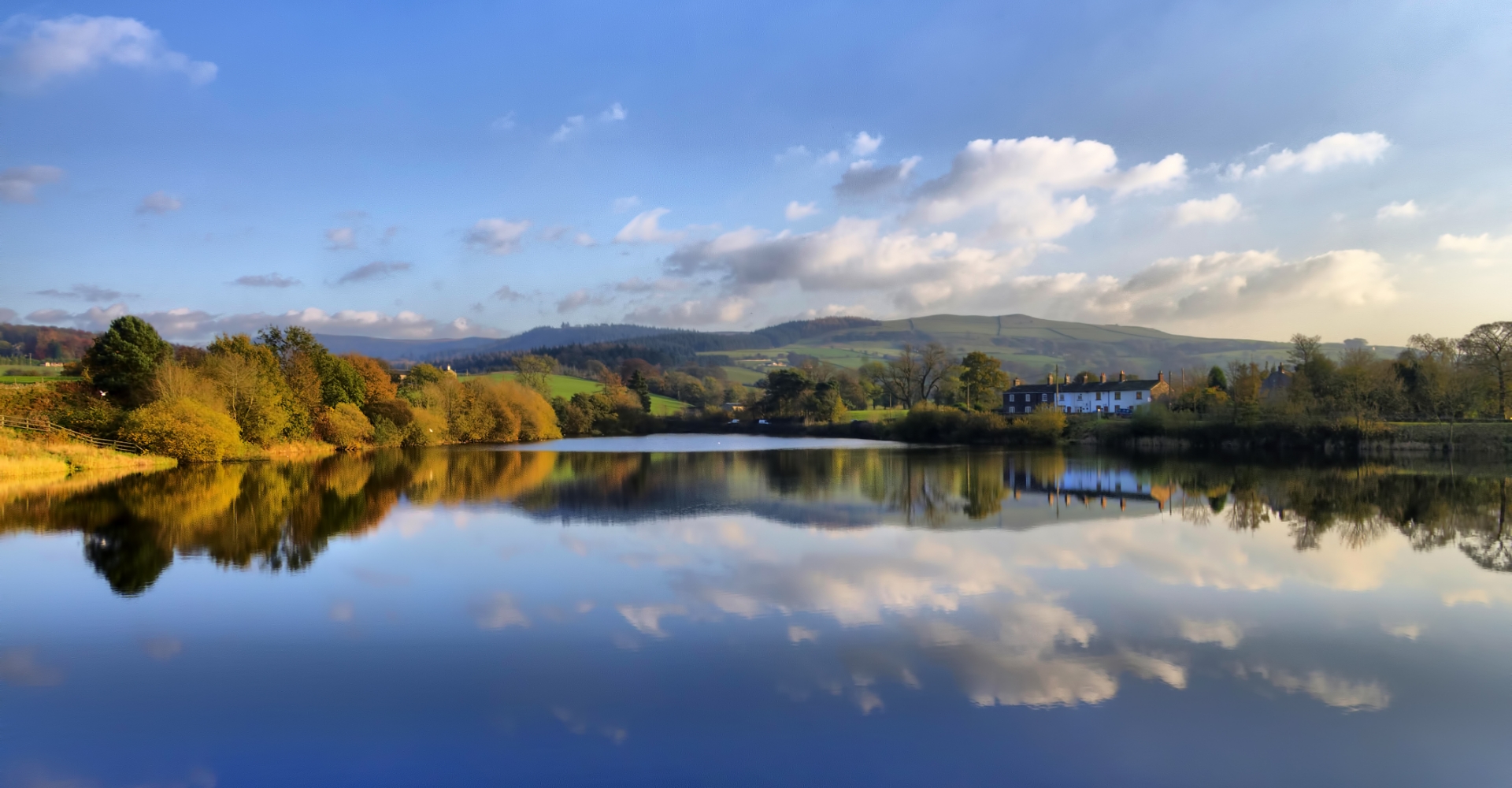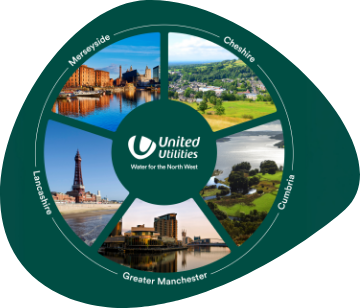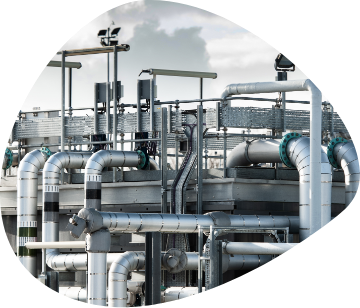Compliance committee ensures robust scrutiny of regulatory submissions
Case studies
The case studies below highlight key examples of the work we are doing to achieve our purpose, and these are strongly aligned to the principles of environmental, social and governance (ESG).
Case study:
Stronger
Compliance committee ensures robust scrutiny of regulatory submissions
We understand the importance of providing accurate and transparent information to regulators and customers.
The compliance committee was established in 2023 to ensure that the board had an even greater opportunity to provide early and in-depth scrutiny of regulatory submissions and to help ensure the accuracy and transparency of information presented to regulators and customers. The compliance committee is made up of three directors, two of whom are non-executive directors. Providing the required oversight, the committee offers technical knowledge, experience and expertise in a variety of areas, including engineering, regulation, finance and audit.
To help ensure compliance with the relevant regulatory reporting requirements prior to submission to the board for approval, the committee has, in 2023, reviewed key regulatory submissions including the annual performance report and AMP8 business plan. The committee challenged the underlying governance approach for these submissions, while providing guidance to improve the clarity of the information presented.
The risk and compliance statement, for example, is a key document within the annual performance report. While providing detail on how we understand our obligations and the systems and controls to manage these, this statement also provides information on any known departures from compliance over the course of the year, known as the Table of Departures. Before the annual performance report submission, the committee challenged the articulation of several departures and made recommendations to enhance the clarity of the information within the Table of Departures.
The committee is also charged with reviewing compliance with other areas of legislation and regulation as they see fit. Additional matters considered by the committee during 2023/24 included reviewing the approach to assurance in areas considered higher risk, such as storm overflow spill reporting, leakage and per capita consumption data. Extra scrutiny in each of these areas has contributed to further refinement of approach and greater confidence over the published information.
“...the committee offers technical knowledge, experience and expertise in a variety of areas, including engineering, regulation, finance and audit.”
Delivering value for:
Case study:
Greener
Acting now to improve the North West’s rivers
We’re committed to making the step change people want to see in improving the North West’s waterways, and our storm overflow reduction plan will see the biggest overhaul of the region’s sewer network in a century.
The plan up to 2050 will require us to invest around £19 billion in the North West. It’s the largest investment of its kind and will bring a massive reduction in sewer pollution entering rivers, beaches and lakes across the North West, as Jo Harrison, asset management director, explains.
“We are re-plumbing our drainage systems, building storage tanks to increase the capacity, separating rainwater out of sewers, and harnessing the power of nature to treat stormwater before it is returned to the environment. Work has already started and people are going to see much more of this over the next 25 years.”
By 2050 the goal is to ensure that storm overflows, the relief mechanism that prevents sewers from backing up and flooding homes and businesses in heavy rain, each operate less than ten times a year. We monitor each one of our overflows, capturing real-time data that gives us a clear picture on how frequently they’re operating, and which should be tackled first – those that are causing harm to river systems. We’ve accelerated delivery at some of the highest priority sites and by 2030 more than 430 storm overflows will be improved, through a mix of nature-based schemes, agile solutions and larger construction projects.
A scheme where a quick solution has had a big impact is in Cargo, a village near the River Eden in Cumbria. A small wastewater treatment works in the relatively remote location services 254 homes and, having no mains power, is reliant on a gravity-based system. The size, scale and location of the site brings multiple challenges, and the local storm overflow was spilling with even modest use, discharging into a local water course.
Following approval of our proposed Accelerated Infrastructure Delivery programme, we moved quickly to create an interim solution. In just 14 weeks, we installed a new tank to provide temporary storage for spills and an additional storm tank to add a further 75m³ capacity, completing that work in August 2023. Where previously the site could treat three litres of wastewater a second, it now treats 17 litres a second. Crucially, spills have reduced significantly, from 343 in 2022 to just nine from September 2023 up to the end of March 2024.
Of course, while Cargo provides a great example of a site where we moved quickly to deliver a rapid solution, the majority of sites need a more substantial and
longer-term approach. One of our much larger projects has seen a vast new underground stormwater storage tank, capable of holding almost two million litres of water, being constructed in Nelson, near Burnley, Lancashire. A combination of an increasing population in the area and the impact of climate change created a need to introduce extra capacity in the sewer system. The stormwater tank will act as a ‘holding area’ for the extra rainwater that enters the sewer network during times of heavy rainfall, meaning the system is less likely to be overwhelmed and reducing spills into the River Calder.
Projects like these form part of our commitment to create better rivers, making the North West stronger, greener and healthier.
Delivering value for:
Case study:
Healthier
Delivering what matters for the North West’s five counties
Engaging with customers and stakeholders in each of our five diverse counties directly informed our business plan for AMP8 and our long-term delivery strategy until 2050.
As we developed our plans for 2025–30 and beyond, it was important for customers and stakeholders to have their say on the services we provide, and for us to make sure our business plan reflected their needs and priorities.
As well as engaging through customer focus groups, workshops and surveys, and carrying out bespoke research, we held ‘Your water, your say’ online panels for each of the North West’s five counties. A further panel was open to attendees from across the entire region and hosted by an independent chair, appointed by Ofwat and the Consumer Council for Water. The sessions allowed attendees to put questions to our CEO and executive team on topics ranging from our impact on the environment to keeping bills affordable. The panels held in June sought feedback on the proposed business plan, seeking views from customers and stakeholders about our proposals; at those held in November we shared details on the actual plan submitted to Ofwat and how insight had shaped this.
All of this engagement activity helped us achieve strong acceptability for our proposed business plan, with 74 per cent of customers supporting the plan.
Understanding the challenges and meeting the needs of our five very different counties requires a unique approach, and we’ve mobilised our teams into county squads to deliver what matters to communities in Cumbria, Cheshire, Greater Manchester, Lancashire and Merseyside.
The county business model brings together colleagues from across the company to drive performance and delivery within each regional location; we’re integrating our network and treatment activities, delivering our plans and investing in new capabilities on a regional basis. An area engagement lead for each county ensures we’re communicating effectively and transparently with our stakeholders about our services.
We’re communicating with MPs and local authorities to talk through the benefits our plan will deliver in each county and explore opportunities for greater collaboration on improving how water is managed across the region.
We used our all-colleague event, held in Blackpool in December, to bring our plan to life with our teams, to share more on how the county squads will operate and to get everyone’s commitment to support us in delivering what matters for the North West.
“Understanding the challenges and meeting the needs of our five very different counties requires a unique regional approach.”
Delivering value for:





